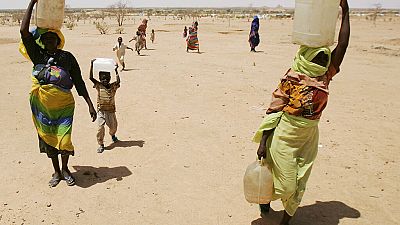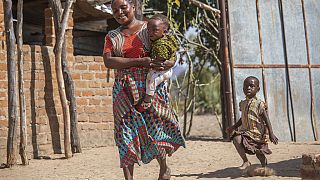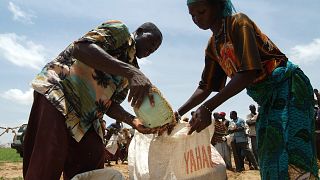Algeria
Riots erupted in Algerian desert city last weekend after months of water shortages left taps running dry and forced residents to queue to access water for their households.
In Tiaret, a central Algerian city of less than 200,000 located 155 miles (250 kilometers) southwest of Algiers protestors wearing balaclavas set tires aflame and set up make-shift barricades blocking roads to protest their water being rationed, according to pictures and videos circulating on social media.
The unrest followed demands from President bdelmajid Tebboune to rectify the suffering. At a council of ministers meeting last week, he implored his cabinet to implement "emergency measures" in Tiaret. Several government ministers were later sent to "ask for an apology from the population" and to promise that access to drinking water would be restored.
Political Implications and Climate Impact
The rioting comes as Tebboune is expected to vie for a second term as president of the oil-rich nation — Africa's largest by area. Northern Africa has been among the world's worst-hit regions by climate change. A multi-year drought has drained critical reservoirs and reduced the amount of rainfall that has historically replenished them.
READ ALSO: Thousands of Afghan children impacted by flash floods
The region, located on a semi-arid high desert plateau increasingly plagued by extreme heat, gets its water from three dammed reservoirs that are shrinking as temperatures spike and less rain falls. The reservoirs have become less functional due to a "death of volume" and are reduced to 20% of their capacity, agricultural engineer Said Ouarad said.
The region's groundwater aquifers have for years not been able to recharge due to an absence of rain, he added.
Long-term and Short-term Solutions
Algeria's long-term solution would be to pipe water from larger dams further north and south from Tiaret and shift to alternative supplies, including desalination plants that the country has heavily invested in.
READ ALSO: Extreme weather stirs cholera outbreaks in parts of east and southern Africa
But in the meantime, officials are trying to import water from nearby sources. Cosider, the public company responsible for the region's water infrastructure, hopes to finish new pipelines by July to bring groundwater to Tiaret from wells 20 miles (32 kilometers) away. Until then, the company is trucking large cisterns of water into the city, a company official not authorized to speak on the matter told The Associated Press.
Current Situation and Media Coverage
"Tiaret and three surrounding municipalities have suffered from this water shortage for months," he said. "A calm has returned but the situation remains tense."
News about the tensions has spread on social media but garnered little news coverage in Algeria, where many papers and television stations rely on advertising revenue from the state. Press freedom in the country has increasingly been curtailed and in recent years journalists have been imprisoned.













01:15
Morocco says 2024 was the hottest year with temperatures reaching 47.7 degrees
Go to video
Global Heat Report: Climate change fuels silent killer
01:18
Gaza Crisis: Water shortages worsen
02:02
New pipeline project transforms Kibera’s water access
03:46
With 500 species, Moroccan exotic garden an oasis of biodiversity
03:52
Amid drought, King urges Moroccans not to kill sheep for Eid al-Adha